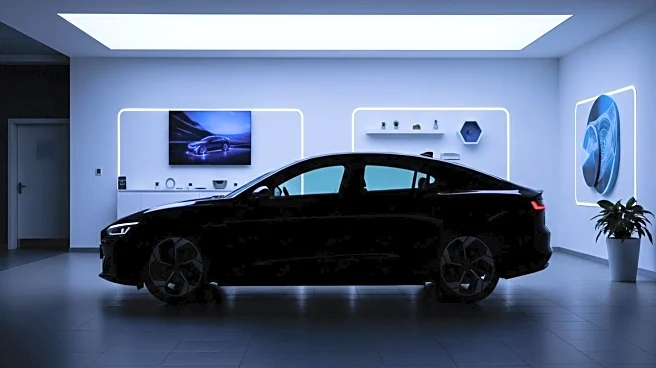What's Happening?
Tesla is experiencing a significant decline in its market presence in Sweden, a country that was once a stronghold for its electric vehicles (EVs). In the second quarter of 2025, Tesla's sales in Sweden dropped by 64.4% year-over-year, with the Model Y, its flagship model, seeing a sharp decrease in sales from 3,812 units in Q1 2024 to just 1,549 in Q1 2025. By July 2025, the situation worsened, with registrations falling 86% compared to the same period in 2024. This decline is attributed to increased competition from local and Chinese automakers, market saturation, and changing consumer preferences. Local brands like Volkswagen and Skoda have capitalized on their established networks and cost-effective EVs, while Chinese manufacturers like BYD have gained traction by offering affordable and diverse models.
Why It's Important?
Tesla's decline in Sweden is indicative of broader challenges the company faces in Europe, where the EV market is becoming increasingly competitive. The rise of local and Chinese competitors highlights a shift in consumer priorities towards affordability and local relevance, challenging Tesla's premium brand positioning. This situation underscores the need for Tesla to adapt its strategies to maintain its market share. The decline also raises questions about Tesla's ability to sustain its global brand loyalty and whether its focus on software and battery innovation can offset its diminishing hardware advantages. The evolving regulatory landscape in Europe, including stricter emissions rules and potential carbon taxes, further complicates Tesla's market dynamics.
What's Next?
Tesla will need to address several strategic challenges to regain its footing in the European market. This includes resolving supply chain disruptions, revitalizing its brand image, and potentially adjusting its pricing strategies to compete with more cost-effective alternatives. The company may also need to enhance its local market understanding and adapt its offerings to meet specific consumer needs, such as compact design and winter performance. As the European EV market continues to grow and diversify, Tesla's ability to innovate and respond to these challenges will be crucial in determining its future market position.
Beyond the Headlines
The decline of Tesla in Sweden reflects a broader fragmentation of the EV market, where no single company can dominate. This shift could lead to a more diverse and competitive landscape, benefiting consumers with more choices and potentially driving further innovation in the industry. Additionally, the geopolitical dynamics, particularly the rise of Chinese automakers, could influence global trade and regulatory policies, impacting the strategic decisions of all major EV manufacturers.










